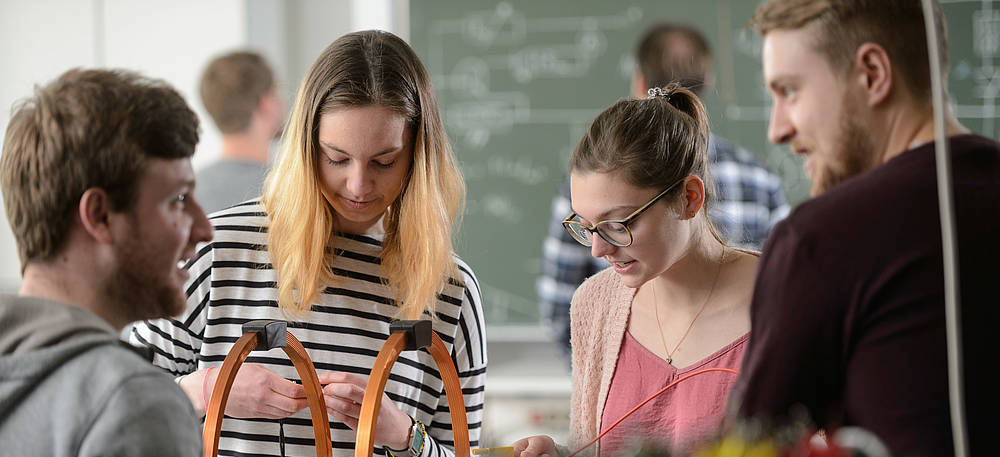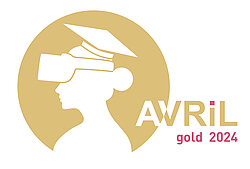Physics education

Physics education is the science of teaching and learning physics.
It focusses on the question of what should be taught in physics lessons (aims of physics lessons and justifications) and all aspects of the question of how these aims can be achieved. This includes analysing pupils' learning processes, surveying pupils' perceptions, designing teaching units, developing experimental materials and teaching media and testing them scientifically.
Physics education is an interdisciplinary science; physics, technology, education, philosophy, sociology and psychology are of particular importance. It can be said that physics education belongs to pedagogy or educational sciences and relates to physics.
Physics education is thus the mediator, the bridge between the subject of physics and educational science, between the subject perspective and the educational task.

As part of the "Successful VR/AR learning scenarios" competition, Christoph Stolzenberger, Florian Frank and Thomas Trefzger were awarded the AVRiL 2024 in gold as overall winners for their entry "Theory meets real-life experiment: Understanding electrical circuits with the AR app "PUMA: Voltage laboratory".
From the jury's laudation:
The practical application and positive feedback in everyday school life demonstrate the high degree of development and practical suitability of the app, as does the large number of accompanying materials that already exist. In addition, the findings and methods are transferable to other natural sciences, which emphasises the broad benefits of this innovative technology. Accordingly, the jury came to the conclusion that this successful submission, not only impresses with its technical aspects, but also with its educational excellence.
Puma:Tension Lab is an excellent example of how AR technologies can revolutionise the learning process and is therefore awarded the AVRiL 2024 for successful VR/AR learning scenarios.








